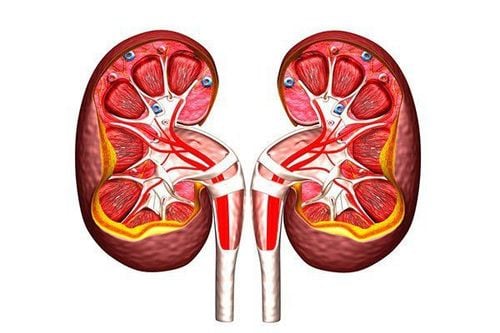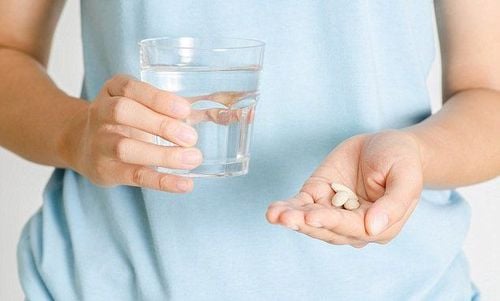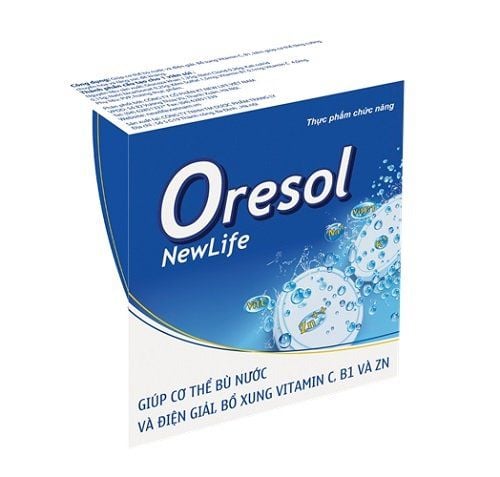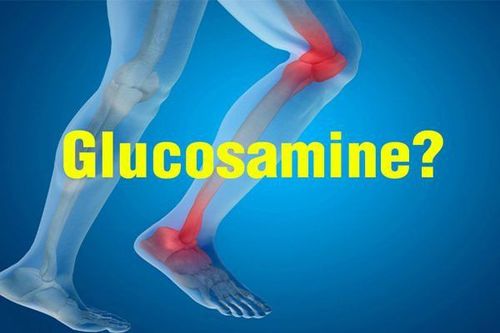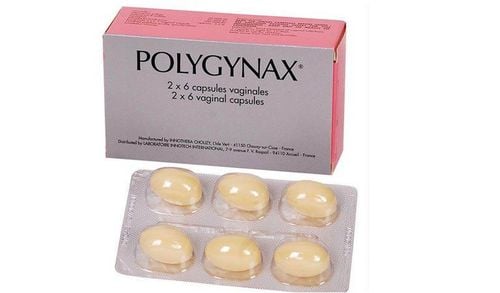Glucosamine is an essential compound in the process of cartilage regeneration. Therefore, medicines containing this ingredient are often prescribed by doctors for people who need to improve the condition of their bones and joints. However, there are many questions surrounding whether taking glucosamine is harmful to the kidneys, and who should not take it?
1. Role of Glucosamine
Glucosamine is a compound naturally found in the human body, serving as a precursor in the formation and development of cartilage and joint tissues. With aging, the level of glucosamine in the body gradually decreases, leading to weakened joints and increasing susceptibility to musculoskeletal disorders.
As joints age and lose flexibility, the body's ability to synthesize glucosamine declines. At this stage, supplementing glucosamine in the form of external preparations becomes necessary. Glucosamine supplements are derived from animal tissues, particularly the shells of crustaceans such as shrimp, crabs, and mollusks, and are processed into oral tablets for easier absorption by the body.
For individuals over 50, glucosamine supplementation is essential if dietary intake cannot meet the body's needs. Most glucosamine-containing products are used as adjunct therapy in chronic joint conditions, including osteoarthritis. Additionally, glucosamine is employed as a dietary supplement to alleviate joint pain and discomfort. Regular supplementation may help slow down joint cell degeneration, stimulate calcium production, and prevent cartilage degradation and osteoporosis.
2. Benefits of Glucosamine
Promotes the regeneration of new cartilage, aiding in the recovery of damaged joints.
Alleviates joint pain, swelling, and redness in affected individuals.
Enhances joint mobility and flexibility by improving connective tissue integrity.
The primary function of glucosamine supplements is to reduce the risk of joint degeneration. However, they do not provide immediate pain relief. Patients with joint pain, osteoarthritis, or arthritis should not use glucosamine as a painkiller. For optimal results in treating arthritis, anti-inflammatory medications may be prescribed in conjunction.
Various glucosamine supplements on the market cater to different patient needs, often incorporating additional ingredients for enhanced efficacy. Therefore, individuals should carefully review the composition of these products and consult a healthcare professional before use.
3. Does Glucosamine Harm the Kidneys?
Dietary glucosamine supplementation is considered safe and free of adverse effects. However, it often falls short of meeting the body's demands, leading most individuals to rely on glucosamine in tablet form, classified as dietary supplements.
Oral glucosamine is sourced from crustacean shells and other organisms. It reduces pain and improves symptoms associated with osteoarthritis. However, like other supplements, glucosamine requires consistent use for 3–6 months to achieve noticeable benefits.
It is crucial to note that glucosamine supplements are not classified as therapeutic drugs. Prolonged use or overuse can impact liver and kidney function due to variations in product formulations and the lack of research quantifying safe supplementation levels.
Is glucosamine safe for individuals with kidney stones?
There is no conclusive evidence suggesting that glucosamine is harmful to the kidneys. However, patients with kidney disease are generally advised against using dietary supplements. Glucosamine is metabolized in the liver, and some types require renal excretion, potentially burdening these organs with long-term use.
Some studies have linked glucosamine use exceeding two years to adverse effects such as acute interstitial nephritis and non-specific renal insufficiency. These findings highlight the importance of monitoring renal function during extended glucosamine use.
In summary, while no definitive evidence exists regarding glucosamine's impact on renal health, experts recommend cautious use, particularly for individuals with pre-existing kidney conditions or those in a weakened state. Regular kidney function tests are advisable to detect potential adverse effects.
4. Who should not use Glucosamine?
Certain groups are more susceptible to glucosamine's side effects. Notably, individuals with seafood allergies may experience allergic reactions. The following groups should exercise caution or avoid glucosamine use:
- Individuals under 18 years old or those allergic to product components.
- Pregnant or breastfeeding women.
- Patients with severe kidney disease.
- Individuals undergoing dialysis.
- Patients with cardiovascular issues, colds, or bacterial infections of the ear, nose, or throat.
- Older adults with hypertension or diabetes.
- Individuals with bleeding disorders or unstable clotting mechanisms.
- Patients on prolonged antibiotic therapy.
- Additionally, glucosamine should not be combined with certain medications, such as antipyretics, pain relievers, or lipid-lowering drugs, to avoid drug interactions.
- Individuals with asthma may experience exacerbated symptoms when using glucosamine, and its use in such cases is discouraged.
In summary, patients should carefully consider whether the use of glucosamine is necessary for their treatment. If they fall into any of the aforementioned categories, it is best to avoid using this supplement. Additionally, users should pay close attention to the formulation, dosage, and other essential product information. When glucosamine is taken at the appropriate dosage and within a reasonable duration, it can provide beneficial effects.
5. Side Effects of Glucosamine
Incorrect or prolonged glucosamine supplementation can lead to side effects, even though most individuals tolerate it well. Common adverse reactions include:
- Gastrointestinal issues such as nausea, vomiting, heartburn, diarrhea, constipation, and abdominal discomfort.
Sensitivity in the epigastric region, often occurring when glucosamine is taken before meals. - Severe gastrointestinal symptoms, including bloating, loose stools, and persistent abdominal pain, in some cases of improper use.
- Other side effects reported include insomnia, dizziness, skin dryness, nail brittleness, and temporary hypertension. Rarely, glucosamine can cause allergic reactions or anaphylaxis, with symptoms such as chest tightness and cyanosis.
Precautions for Glucosamine Use
According to doctors' recommendations, glucosamine should only be used if you are experiencing joint-related issues. To ensure optimal absorption and maximize the benefits of glucosamine while minimizing side effects, it is essential to use it correctly. Here are some important guidelines for using glucosamine:
- Typically, one glucosamine tablet contains approximately 1500 mg of pure glucosamine. To optimize absorption, it is recommended to take glucosamine during or immediately after a meal.
- When taking glucosamine, drink it with plenty of water, using plain water or warm water instead of sugary drinks or fruit juices.
- Develop a balanced diet, incorporating healthy foods and beverages, while limiting unhealthy items such as alcohol and tobacco.
- Experts recommend that users maintain a dosage of 1,500 mg of glucosamine per day for the first 1-2 months and gradually reduce the dosage over the following 3-6 months.
- Using multiple types of glucosamine at the same time with different dosages can increase the risk of overdose reactions, such as elevated blood sugar levels or unstable blood pressure
- Depending on each individual's constitution, the ability to absorb glucosamine may vary; however, users should adhere to the treatment duration and use the appropriate dosage.
- After each treatment cycle combining glucosamine with other medical methods, a general examination is needed to assess the effectiveness and determine whether to continue the treatment.
- According to many studies, glucosamine is classified as a slow-acting medication. Glucosamine primarily affects the symptoms of arthritis and may take 2-3 months of continuous use to show its full effect.
- Proper physical activity is an important condition for maintaining good health.
Whether glucosamine harms the kidneys depends on how it is used. However, long-term studies have shown changes in kidney function when glucosamine is overused for extended periods. Therefore, users should consult their treating physician and carefully read the information about the medication, ensuring they do not exceed the recommended dosage or extend the treatment duration, as this could lead to uncontrollable side effects.
To arrange an appointment, please call HOTLINE or make your reservation directly HERE. You may also download the MyVinmec app to schedule appointments faster and manage your reservations more conveniently.




